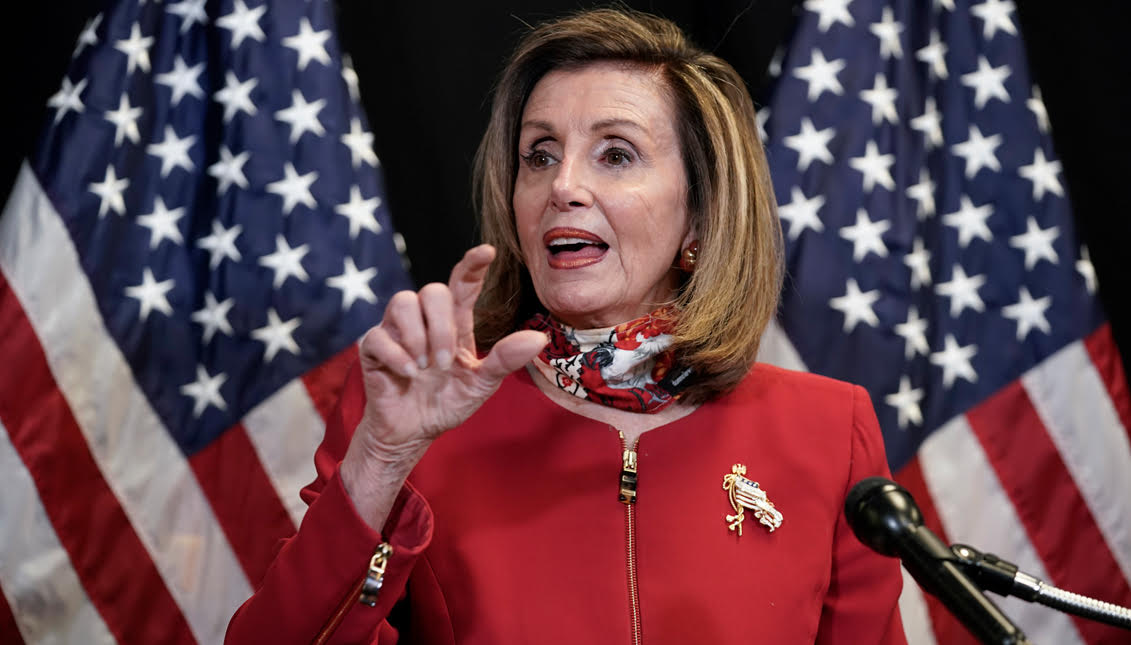
How the American Rescue Plan Act could change the country’s social safety net for good
Some integral parts of President Biden’s $1.9 trillion COVID-19 relief bill could become permanent.
On Tuesday, March 9, the long-awaited Covid relief bill was passed by the House in a final vote and President Joe Biden signed it into law on Thursday March 11.
In addition to the $1,400 stimulus checks that eligible Americans will receive, the relief package includes an expansion of existing social safety net programs.
BREAKING: Pres. Biden has signed the American Rescue Plan Act, an estimated $1.9 trillion COVID-19 relief bill that aims to boost vaccination efforts, assist in school reopenings, expand access to health care, and address food & housing insecurities brought on by the pandemic. pic.twitter.com/84qcylEgXo
— NowThis (@nowthisnews) March 11, 2021
These expansive provisions are being hailed by Democrats and progressive policy advocates.
At a time when millions of Americans have been facing record numbers of food insecurity, unemployment and an ongoing housing crisis, the package will bring urgent aid to many.
Food insecurity issues have been on Biden’s radar even before he took office. In honor of MLK Jr. Day of Service on Jan. 18, he and First Lady Dr. Jill Biden made the trip to Philadelphia’s largest hunger relief organization, Philabundance, to pack boxes of food for several communities.
Pres.-elect Joe Biden and wife Dr. Jill Biden stop by Philabundance, Philadelphia's largest hunger relief organization, to mark the National Day of Service, a holiday that encourages community volunteering in honor of Martin Luther King Jr. https://t.co/VteyezRf4z #MLKDAY pic.twitter.com/ooE09jaemk
— ABC News (@ABC) January 18, 2021
According to Jones, the country has seen a 60% increase in people facing food insecurity, and 40% of those people are experiencing this problem for the first time.
Homeless encampments have been on the rise in cities across the country, especially in Philadelphia, as an unfortunate byproduct of pandemic-induced economic hardships.
Another sad sight where a new Philadelphia homeless encampment is growing underground along the Locust Street @PATCO & @Septa subway corridors as morning commuters walking past tents and some people without tents. @FOX29philly pic.twitter.com/yQESiYkN1t
— Steve Keeley (@KeeleyFox29) February 25, 2021
The American Rescue Plan Act is essentially a broad-based assault on the devastating cycle of poverty that too many Americans find themselves stuck in. It will provide food and housing assistance, enhanced access to healthcare and other forms of direct aid to families.
More than $6 billion will go towards food security-related programs, more than $25 billion will go towards emergency rental assistance, and about $10 billion will provide homeowners with emergency mortgage aid.
Ellen Vollinger, legal director of the Food Research & Action Center, praised the bill’s wide range of assistance programs, describing it as monumental and vital.
“When you stand back and look at it, that’s when you really can appreciate the sheer scope of it,” Vollinger said.
The ambitious efforts to actually lift people out of poverty reminds many observers of the somewhat old-school Democratic party ideal, and of former President Franklin D. Roosevelt’s New Deal.
Andre Perry, senior fellow in the Metropolitan Policy Program at the Brookings Institute, said that the bill is “a recognition that the social safety net is not working and was not working prior to the pandemic.”
RELATED CONTENT
“We haven’t seen a shift like this since FDR. It’s saying families are too big to fail, children are too big to fail, the elderly are too big to fail,” Perry said.
House Speaker Nancy Pelosi commented on the ground that the legislation is breaking. She called it “one of the most transformative and historic bills any of us will ever have the opportunity to support.”
In particular, the extension of the child tax credit system is viewed as a potentially foundational change. Previously, millions of families whose incomes are too low to qualify for the full benefits of the system will now receive up to $3,600 this year for each child.
Not only did Dems get you another #stimmy, but we increased the child tax credit to $3000 per child & made it so that you could get a monthly cash advance of this credit starting in July. Money is money & it will be in your pocket soon! This is incredible! Fighting for more!
— Maxine Waters (@RepMaxineWaters) March 11, 2021
Democrats touted the 2021 analysis by the Center on Poverty and Social Policy at the Columbia School of Social Work. The report predicted that the American Rescue Plan Act would slash nationwide child poverty by 45%.
Last year, benefits provided by the Supplemental Nutrition Assistance Program (SNAP) were increased by 15%. The relief package will extend these increased benefits through September 2021. It will also provide extra funding to administer the expanded SNAP program, which will include online purchasing.
The package also includes the biggest expansion in federal aid for health insurance since the Obama-era Affordable Care Act more than a decade ago. Several million people could see their insurance costs reduced and there’s an incentive for states to expand coverage of Medicaid, if they haven’t already.
Many of the legislation’s changes are temporary, but advocates and Democratic lawmakers are openly discussing implementing them permanently.
Biden himself, as he signed the package into law, referred to it as a genuine attempt to restructure the country’s economic fault lines in a way that is larger than just tackling pandemic issues.
“This historic legislation is about rebuilding the backbone of this country and giving people in this nation, working people and middle-class folks, the people who built this country — a fighting chance,” Biden declared.











LEAVE A COMMENT: